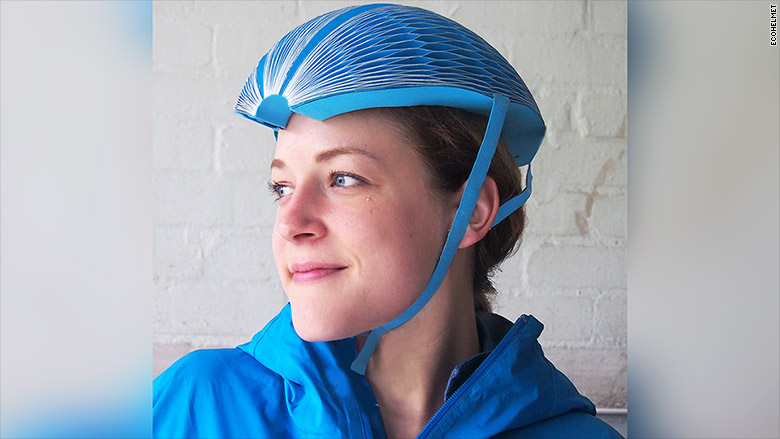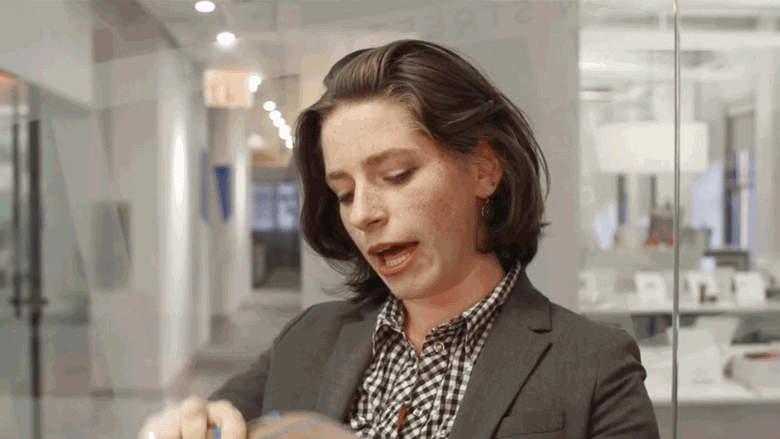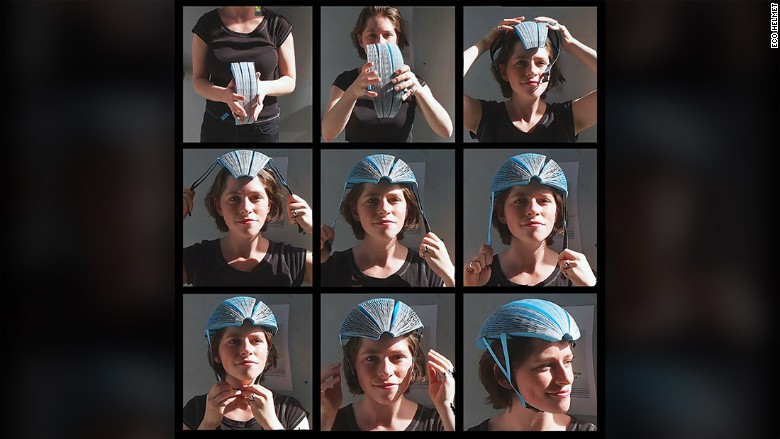Source: money.cnn.com
Published: September 8, 2016

The EcoHelmet
by Parija Kavilanz
The popularity of bikesharing is booming among city commuters, thanks to the convenience — and affordability — of renting a bike on the go.
But it has one glaring drawback. There’s no easy way to rent a helmet.
28-year-old industrial designer Isis Shiffer was tired of lugging around her own helmet, so she took matters into her own hands.
Called the EcoHelmet, Shiffer created a unique foldable helmet designed to be purchased from a vending machine at a bikeshare station.
“You could buy a helmet for $5 or less, and when you’re done with the ride, you’d put it back in a recycle bin located at each station,” Shiffer, CEO and founder of design consultancy Spitfire Industry, told CNNMoney.
The eco-friendly bike helmet is made from cardstock paper and folds to the size of a banana. While material that’s thinner than cardboard might not sound like a solid way to protect yourself while biking, it’s designed to do just that.
“It protects the head just as well as a regular polystyrene helmet,” said Shiffer.
The EcoHelmet features a radial honeycomb pattern that absorbs a hard blow and spreads impact evenly around the head. The paper is coated with a corn-based biodegradable wax that makes it waterproof — the same kind that coats disposable coffee cups. The helmet can also potentially be made from plastic.
While the EcoHelmet is just a concept design for now, it generated buzz after nabbing the 2016 James Dyson Award and beat out 99 other U.S. entries. The international design contest, run by the James Dyson Foundation, is open to students and recent graduates who have designed a product or concept to solve a problem.
Shiffer spent a year and a half researching and perfecting the design of the helmet while studying at New York’s Pratt Institute.
“I even shoehorned it into my final thesis about public commuting in cities,” she said.

From the outset, she sought to create a helmet that’s cheap, recyclable and available to anybody.
To ensure safety, Shiffer tested it by using a crash testing rig. “We dropped 10 pounds of weight from three feet and it withstood the impact,” she said.

U.S. federal safety standards require a bike helmet to protect the wearer’s head from an impact that’s equivalent to a 6-1/2 foot drop.
“We’re now doing more rigorous testing to get it certified to that standard for use in the U.S.,” she added.
Shiffer is currently meeting with potential partners and investors to officially launch the helmet. The goal is to start manufacturing the product — ultimately in various colors — and offer them through bikeshare services.
“I want my helmet to keep cyclists safe, and make cities safer and greener at the same time,” Shiffer said.
